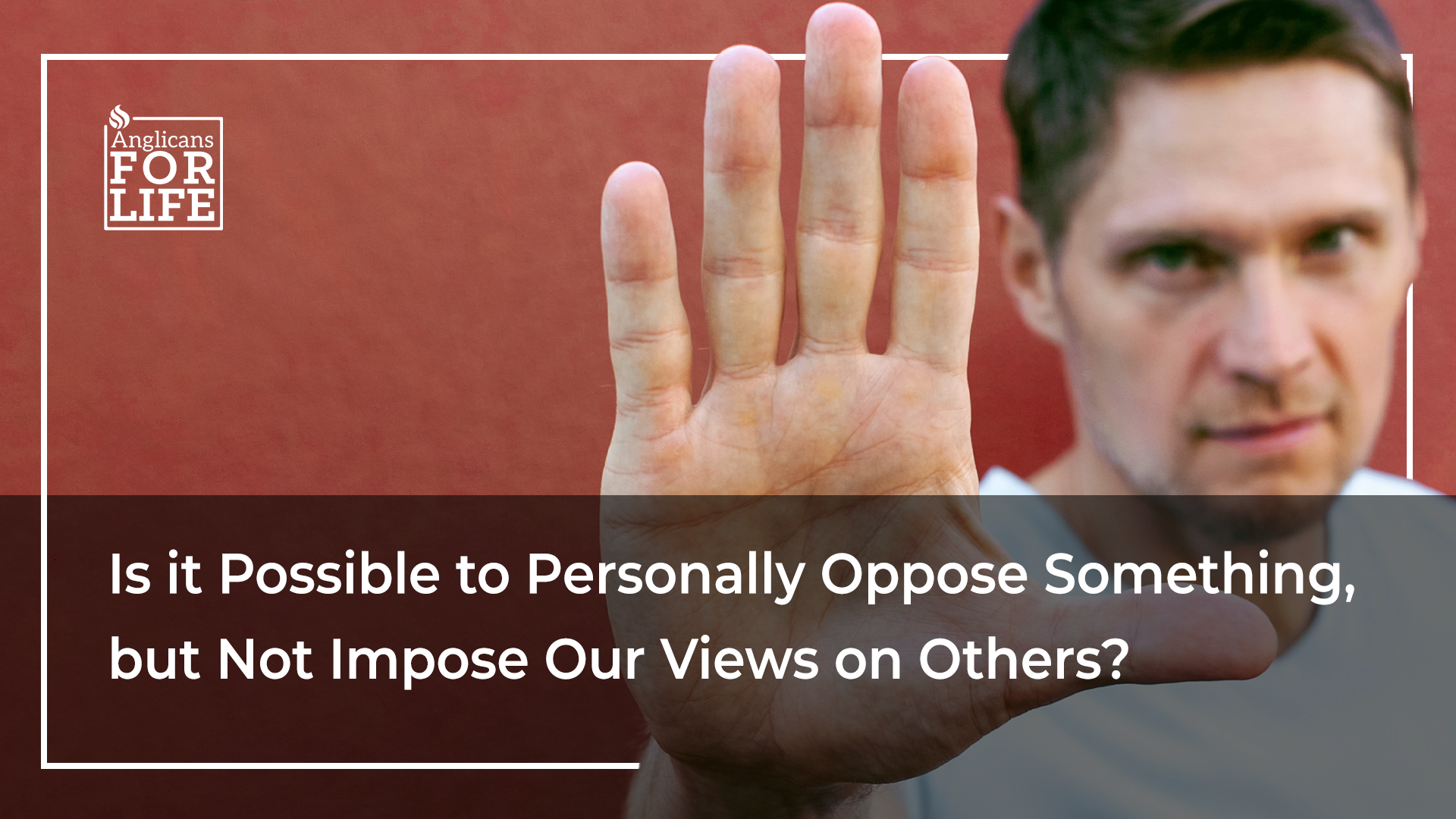By: Robert Morris
As a child, my sister was once asked at a party what she thought of the food. In an early attempt at tact, she replied, “It’s very good, but I don’t like it.”
That kind of verbal collision between signaling a virtue and revealing a truth—resembling what psychologists call cognitive dissonance—comes to mind when hearing these days a more common though less humorous line that tries to straddle differing ideas: “I’m personally opposed to [fill in the blank], but I wouldn’t impose my views on others.”
The line means more, though, than how we handle matters of taste. The point need not be made about most foods—let alone sports, hobbies, or other activities considered legal, moral, and safe.
Does this line simply reflect the American belief that, even if we disagree with a controversial claim, we’ll defend another person’s right to say it? Not quite, because that venerable belief is not meant to end a debate so much as support a fair hearing of the other side’s argument.
That said, this line does not necessarily apply to all serious issues. For example, I haven’t heard this line used in arguments over war or capital punishment where we earnestly want everyone to agree with us. For that matter, the line isn’t used in topics such as child pornography or trafficking where everyone already agrees.
No, this line and its fill-ins are saved for a gray, middle ground of sensitive, highly personal yet unresolved issues where persuasive arguments may well sting and not be welcome. Cultural issues occupy this middle ground because we probably know someone with an opposing view deeply felt—a friend or family member, or perhaps a person of faith sitting beside us in the pew.
Whether spoken or not, this line of thought too often applies to abortion. Even if we show our sympathy for the unborn by saying we oppose abortion, we may not want to cast judgment on women who have undergone abortions. For that matter, we may not want to judge the women’s parents and boyfriends who have encouraged abortions. Depending on our audience, saying no one should get an abortion could be considered inappropriate or uncool. This reluctance may rise to a higher level when our audience includes a loved one whose relationship we’re afraid to lose.
The problem with the line is that an unborn life is not less human, valuable, and susceptible to pain just because that baby is in someone else’s womb. If every one of us is knit together in our mother’s womb—and made in God’s image—then we should not distinguish human value based on the womb’s location. LiveAction.org makes this point well in its video, “I’m Personally Pro-Life But…” found at https://prolifereplies.liveaction.org/personally-pro-life/.
To truly follow God’s command to love one another, including people Jesus calls “the least of these brothers and sisters,” we must overcome our gnawing discomfort in confronting, at every opportunity, this line of lukewarm opposition to abortion. We can use references like Shawn Carney and Steve Karlen’s book, What to Say When, to give answers to questions that come up—and ask questions of our own to plant seeds that could bear fruit, change minds, and save lives.
“To truly follow God’s command to love one another, including people Jesus calls ‘the least of these brothers and sisters,’ we must overcome our gnawing discomfort in confronting.”
Robert Morris
For example, let’s ask a mother facing an unplanned pregnancy, “What makes you believe abortion is the best choice for you?” Rather than remain silent and enable another abortion, we should realize that almost nothing we do is more vital than persuading someone about to take an innocent life to think of what lies ahead: Damaged health may await the mother, along with painful regrets for her and the father, if the baby is killed; in contrast, innumerable blessings will abound through life’s milestones if, instead, the mother chooses to parent the baby; and alternatives do exist like adoption or safe haven boxes if the mother is not ready to parent. We can also note free resources available from church affiliated programs like pregnancy centers and Embrace Grace.
In The Crack-Up, an introspective work written towards the tragically early end of his meteoric career, F. Scott Fitzgerald said, “The test of a first-rate intelligence is the ability to hold two opposed ideas in the mind at the same time, and still retain the ability to function.” While this startling claim may sometimes make sense, it also suggests how we can mistake contradiction for clever nuance, and wind up conflicted and confused. In 1 Corinthians 14:33, Paul offers a much simpler, and more effective way to be consistent in affirming life: “For God is not a God of confusion but of peace.”

Robert Morris recently retired from a career in management to devote more time to family, friends, travel, and volunteer work as well as writing. After attending the AFL Life SUMMIT in January, he was inspired to share his gift of writing with Anglicans For Life.




